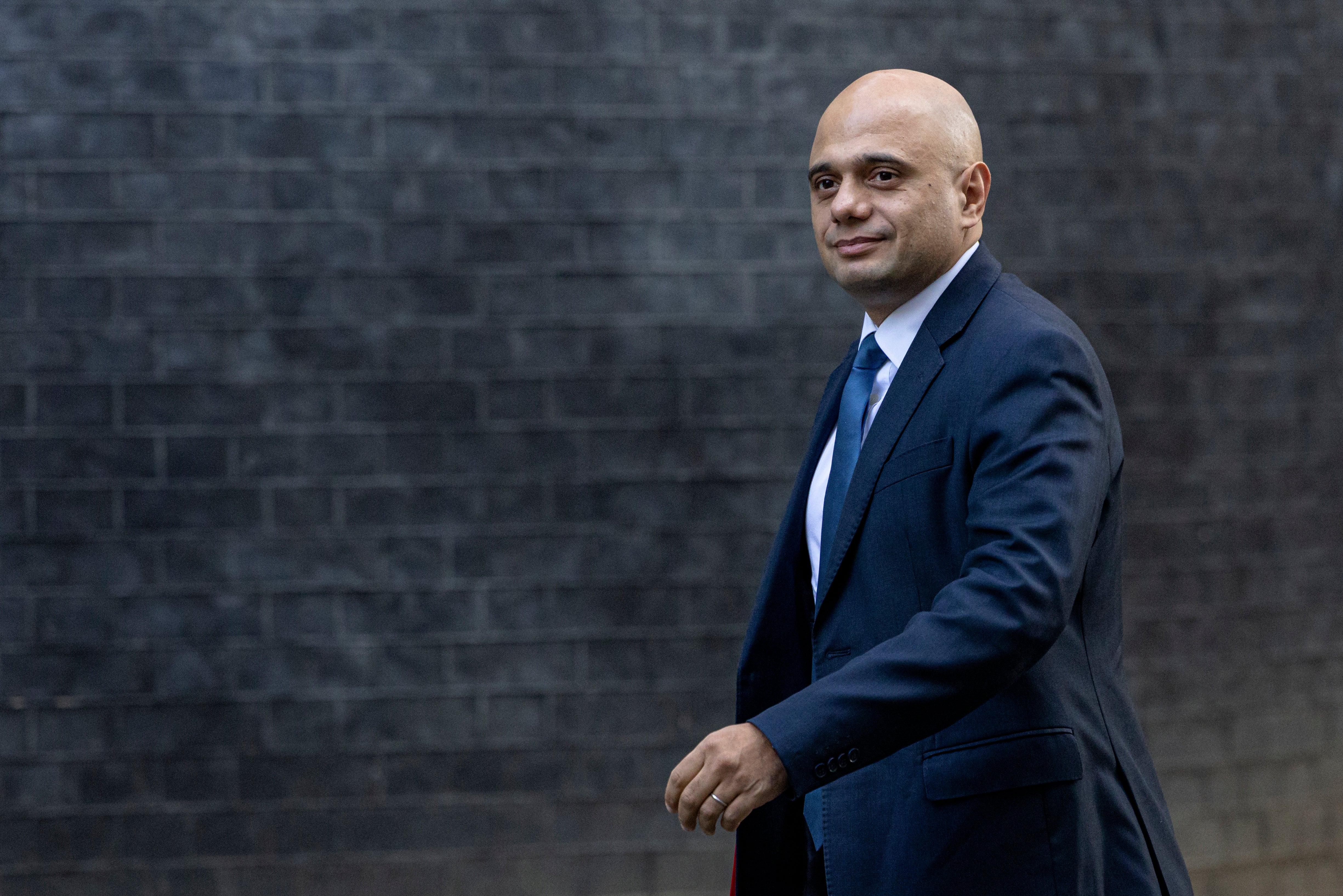Sajid Javid urges over-40s to book booster jab ‘to keep Covid at bay’
Booking system will open from Monday, according to the Department of Health and Social Care

Sajid Javid has urged people between the ages of 40 and 49 to book a Covid booster jab from tomorrow in order to keep Covid surges seen in parts of Europe “at bay”.
The extended eligibility of the booking service for boosters will also coincide with 16 and 17-year-olds being urged to book a second dose of a Covid-19 vaccine from Monday.
Earlier this week, the Joint Committee on Vaccination and Immunisation (JCVI) advised the government that all adults over 40 should be offered a third jab six months after their second – a recommendation that ministers accepted.
Those eligible for a booster jab can book their appointments in advance, from five months after their second dose of a Covid-19 vaccine, in order to be vaccinated as soon as they reach the six-month mark, the Department of Health and Social Care (DHSC) said.
The department also highlighted data this week showing that two weeks after receiving a booster shot, protection against symptomatic infection in adults over 50 was over 93 per cent for those who had received an Oxford vaccine, and 94 per cent for those given the Pfizer.
In total, over 14 million people have now received a booster jab across the UK, with the DHSC insisting that the programme, coupled with initial vaccinations, will ensure “we can enjoy Christmas safely”.
Health secretary Mr Javid said: “Getting your Covid-19 booster vaccine is the best way to keep yourself and your loved ones safe this winter and will help to reduce the pressure on the NHS.
“While the government is continuing to monitor a wide range of data to ensure the country remains protected, we have very sadly seen a surge in cases in parts of Europe.
“The most important thing we can do to stop a similar rise in this country is get the jab – so please get your vaccines as soon as you can, so we can keep the virus at bay.”
The past week has seen the reimposition of Covid restrictions in parts of mainland Europe in response to an exponential increase in infections, with Austria announcing a full national lockdown alongside compulsory vaccinations.
Cases of Covid have been running at high levels since large swathes of restrictions were lifted in the summer, with the latest government figures showing over 44,000 new cases of the virus recorded on Friday.
Speaking on the BBC, however, professor Andrew Hayward, who advises the government as a member of the New and Emerging Respiratory Virus Threats Advisory Group (Nervtag), said there were a number of differences between the UK and mainland Europe.
“I think there’s a number of differences – the main one being that we’ve been running at very high levels of infection for a long time really, since July when we opened up, so we’ve really had a high plateau of cases, with associated hospitalisations and deaths,” he said.
“Whereas Europe’s only really begun to increase since about the beginning of October, and now that’s built up speed and is in some parts of Europe becoming an exponential increase.”
However, he said, “we’re still higher than the European average – there are countries in eastern Europe that are higher than us, as well as Austria and Germany. It’s catching up with us now. It’s a very different background.”
Professor Hayward also stressed that the speed of the booster campaign could have a “substantial impact” on whether increased infections will translate into hospital admissions.
Regarding the UK’s own position, he added: “We’ve got over 8,000 people in hospital with Covid, nearly a thousand of them on ventilators. We have, compared to Europe, far lower numbers of hospital beds available to put people in, so we are on a bit of a knife-edge with Covid here.
“But when you add in all the other respiratory infections that come in the winter, when we’ve got high levels of population mixing, when you add in that huge backlog, the NHS is already in serious trouble. So I think we do need to be prepared to take action.”
Subscribe to Independent Premium to bookmark this article
Want to bookmark your favourite articles and stories to read or reference later? Start your Independent Premium subscription today.

Join our commenting forum
Join thought-provoking conversations, follow other Independent readers and see their replies